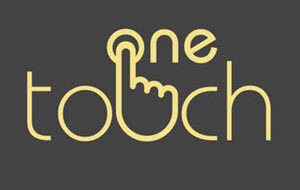Forex
You are here: Home » Forex
The forex market, also known as the foreign exchange market, is what we call the over-the-counter (OTC) global currency trading that determines the exchange rates for many different currencies around the world. It is not a centralized market. Instead, it is made up by a variety of players and their trading solutions, including central banks, commercial banks, investment banks, investment management firms, hedge funds, forex dealers, retail forex brokers and their clients, and large corporations in need of foreign currency for their business activities.
The forex market is the world´s largest financial market, and since it is comprised of a network of financial centres, it is active 24 hours a day, Monday – Friday.
Currency pairs
Sponsored Brokers With Forex Trading
The foundation of the forex market are the currency pairs. When you purchase a currency on the fx market, you always pay using another currency, so each transaction involves two different currencies. These two currencies form a currency pair.
Examples of frequently traded currency pairs:
- EUR/USD (Euro/US dollar)
- USD/JPY (US dollar/Japanese yen)
- GBP/USD (Sterling/US dollar)
- AUD/USD (Australian dollar/US dollar)
- USD/CAD (US dollar/Canadian dollar)
- USD/CNY (US dollar/Chinese renminbi)
- USD/CHF (US dollar/Swiss franc)
- USD/HKD (US dollar/Hong Kong dollar)
The first currency in the pair is the base currency and the second currency is the quote currency.
In the currency pair EUR/USD, Euro is the base currency and US dollar is the quote currency. In the currency pair USD/JPY, US dollar is the base currency and Japanese yen is the quote currency.
The spot price
The spot price of a currency (as quoted in another currency) is the price of that currency when traded on the spot market. It is also known as the spot exchange rate. In essence, it is the price that a buyer and seller are willing to agree on for a currency transaction where delivery is to take place on the earliest possible value date. The cash delivery date for spot currency transactions is usually the standard settlement date of two business days after the transaction date (T +2), but there are exceptions.
Spot market transactions make up a large portion of the total forex market, and spot market prices have a huge impact on how the market values currency derivatives.
The forward forex market
The forward market is based on an agreement between a buyer and a seller to exchange currencies at a set exchange rate at an agreed-upon date set fairly far into the future (not T+ 2 business dates as for spot transactions).
Currency forwards are always cash settled (usually in USD); there is not actual exchange of the currencies in the currency pair.
The forward forex market is commonly used for hedging, which is a type of risk-management.
The futures forex market
This market is similar to the forward forex market, but matching and transactions take place through an exchange and the market is therefore strictly regulated and the futures contracts are standardized.
Just like forex forwards, forex futures are often utilized for hedging.
This article was last updated on: January 16, 2024







